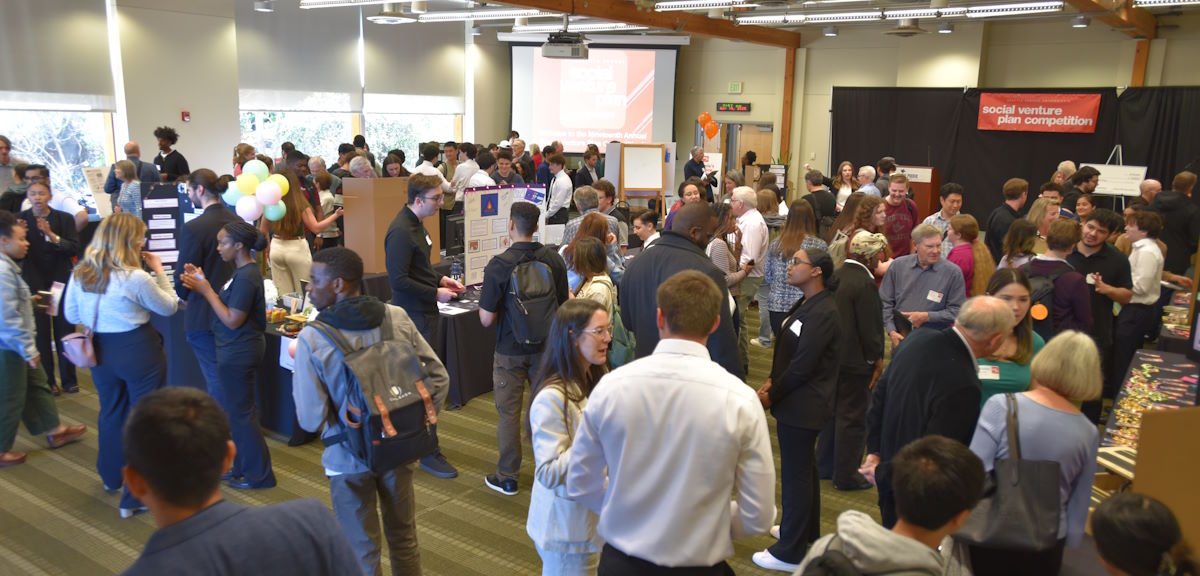
Winning Projects Span the Globe in 2025 SVPC
Seattle Pacific University held its Nineteenth Annual Social Venture Plan Competition (SVPC) Showcase on Wednesday, April 16, 2025. Student teams developed solutions to a wide variety of social problems, both in the United States and around the globe. From preserving traditional arts in Nepal, to helping young video game artists get mentorship, from warm blankets for the homeless, to AI-informed apps to improve mental health, these innovative ideas tackled the issues on the hearts and minds of college students today. The Showcase event, the finale of the annual SVPC, occurred in upper Gwinn Commons on the SPU campus.
Foster youth who age out of the system face increased likelihood of unemployment, substance abuse, mental health issues, and homelessness. Lacking strong support networks, 40% of them land on the street. Summit Steps envisions a world where foster youth can heal from their past and step into a future of hope and opportunities. They will offer a comprehensive job training and placement program for high demand industries such as construction and health care. Utilizing a series of partnerships, the organization would couple job placement with career counseling, mentorship, and wraparound services to provide a stable platform for these young people exiting the system. The Summit Steps team included senior Business Administration major Emerie Cantrell, senior Accounting major Blen Teklemariam, junior Biochemistry major Joy Maina, and junior Business Administration (Finance) major Greg Torres-Uhler.
Three Honorable Mention prizes of $2,500 were also awarded:
This is the nineteenth year of SPU’s Social Venture Plan Competition. Fifteen teams presented their business ideas at the Showcase event, comprising approximately 60 students. In the first round of the competition, an initial wave of 16 written business plans, representing students from six different schools, were read, reviewed, and scored by community partners.
The Showcase Round was the finale of the Social Venture Plan Competition. In addition to the review of written business plans, earlier stages in the competition included a series of seminars on the basics of writing a business plan as well as coaching sessions with knowledgeable businesspeople, non-profit executives, and others. In all, over 120 community volunteers gave time as readers, instructors, coaches, and judges.
Executive coach and first-time SVPC judge Darrell Kirk observed, “With all that's going on in the world right now, people need to know that incredible events like this are making a difference in the world. I'm so inspired seeing these students and their passion for doing good in the world. The future of America is in good hands.”
Even those who did not win a cash prize found the experience rewarding. Danny Pham, a senior Computer Engineering major commented, “It was a letdown not to win, but the learning experience made it all worth it."
Financial sponsors of the SVPC include the Herbert B. Jones Foundation, the Scott and Kathleen Cummins Family Foundation, Kathryn and Tim Carlson, Northwest Center, the Tschetter Group, Charles Schwab – Bellevue, Highland Private Wealth Management, Pioneer Human Services, and Skills, Inc. The competition is organized by the Burton and Ralene Walls Center for Applied Learning (CAL) in SPU’s School of Business, Government, and Economics (SBGE).